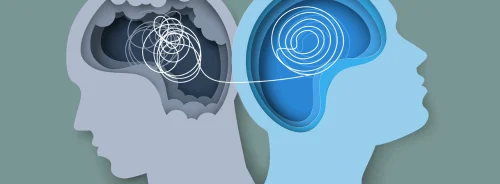America’s medical schools, renowned for their cutting-edge facilities and history of innovation, face a critical juncture. With artificial intelligence (AI) poised to revolutionise healthcare, the question arises: are these institutions prepared to integrate this transformative technology into their curricula effectively? While many have begun incorporating AI, the current approach—focused on theoretical applications, ethical considerations, and administrative tasks—falls short of equipping future physicians with the necessary skills to enhance medical care and save lives. This article explores the urgent need for a comprehensive overhaul in medical education, highlighting key areas where generative AI (GenAI) can make a significant impact.
Chronic Disease Management: From Episodic to Continuous
Traditional medical education emphasises memorising diagnostic and treatment algorithms, expecting graduates to apply these to manage chronic diseases. This episodic approach, involving sporadic patient visits and routine follow-ups, often results in poor disease control due to the lack of continuous monitoring. Chronic diseases like diabetes and hypertension affect 60% of Americans, leading to 1.7 million deaths annually from complications such as heart attacks and strokes. Inadequate prevention and management practices exacerbate these outcomes.
Integrating GenAI into medical training can shift this paradigm from episodic to continuous care. Wearable monitors, capable of tracking blood pressure and blood sugar levels, can provide real-time health data analysis and timely medical advice when paired with AI. This technology allows for earlier interventions, reducing unnecessary office visits and improving patient outcomes. Effective AI-driven chronic disease management could prevent 30% to 50% of life-threatening complications, potentially saving up to 850,000 lives annually and reducing healthcare costs by $272 billion. By teaching medical students how to leverage GenAI for continuous monitoring, we can significantly enhance the quality of chronic disease care.
Diagnosis: From Confirmation Bias to Constant Second Opinion
Medical education currently relies heavily on students’ ability to memorise and recall information to diagnose and treat patients. This approach, coupled with the pressures of clinical practice, often leads to cognitive biases and diagnostic errors, which result in approximately 400,000 deaths annually in the U.S. GenAI presents an opportunity to mitigate these errors by providing a reliable second opinion that enhances diagnostic accuracy.
AI can analyse vast amounts of patient data, including symptoms, medical histories, and test results, without falling prey to human biases. By comparing a patient's data against a comprehensive database of known diseases, AI can suggest potential diagnoses that human doctors might overlook. Studies have demonstrated AI's potential in emergency room settings, where it has matched or exceeded the diagnostic accuracy of medical professionals. As AI technology continues to evolve, its integration into medical training will help future physicians reduce diagnostic errors and improve patient safety.
Integrating generative AI into medical education is not just a technological advancement; it is necessary to bridge the gap between the current state of medical training and future healthcare needs. By focusing on continuous disease management, enhancing diagnostic accuracy, and revolutionising clinical research, AI has the potential to transform medical practices and outcomes. However, this transformation requires a fundamental redesign of medical curricula to equip students with the skills to harness AI effectively. The next era of medicine is upon us, and the call to action is clear: medical schools must act now to prepare the next generation of physicians to utilise AI to its full potential, ultimately improving patient care and saving lives.
Source: Forbes
Image Score: iStock






